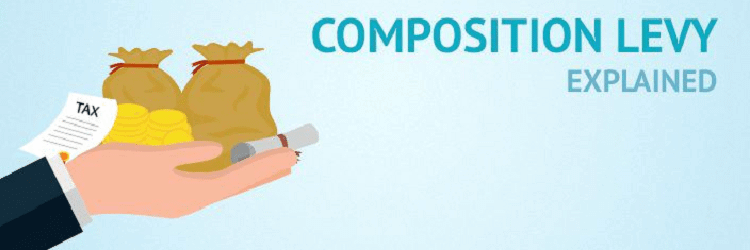
Composition scheme under GST
Like every tax reform, India’s Goods and Services Tax (GST) will face various hurdles and difficulties during its implementation. Small taxpayers will be particularly affected. To help ease the implementation and tax compliance process for them, the government has introduced a composition scheme. This already exists under many state VAT laws. However, it is absent in the central laws of service tax and excise.
The composition scheme allows qualifying taxpayers — those whose turnover in the preceding financial year was less than 50 lakhs — to pay a percentage of their yearly turnover in a state as tax. This relieves the taxpayers from collecting tax from their customers directly and provides other benefits as well. The composition scheme enables small taxpayers to:
- File a single quarterly return in place of multiple monthly returns
- Report turnover pertaining to outward supplies in a single line item on the return
- Pay a lower rate of tax, thus offering a competitive advantage
- Follow relaxed rules around maintaining books of accounts and records under GST
Conditions for applicability include:
- Must be a registered taxpayer
- Goods held in stock must not have been purchased from outside the state or from outside India
- Goods held in stock must not have been purchased from an unregistered dealer; if so, the taxpayer shall pay tax on the goods
- Aggregate turnover in the preceding financial year must have been less than 50 lakhs. Aggregate turnover includes the value of taxable and non-taxable supplies, and exempted and exported supplies. It does not include taxes levied under GST or the value of inward supplies
- If more than one registered persons have the same PAN, then a registered person shall not be eligible for the composition scheme unless all registered persons under the same PAN opt in for the composition scheme
Those not eligible for the composition scheme include:
- Service providers
- Suppliers of non-taxable goods
- Taxpayers engaged in the interstate supply of goods
- Those engaged in supply of goods through an eCommerce operator
- Manufacturers of notified goods
- Casual taxable persons or non-resident persons
If it turns out that an ineligible taxpayer enters into the composition scheme, he will later be liable to pay the differential tax along with a penalty.
Taking advantage of the composition scheme
To opt in for the composition scheme, qualifying taxpayers must make their intention known to the government.
- (a) If the migration takes place from the existing laws to GST, the registered person needs to electronically submit Form GST CMP-01 within 30 days of the appointed day.
(b) File Form GST CMP-03 containing details of stock, including purchases from unregistered persons, within 60 days of opting for the composition levy. - (a) Any other supplier who opts for the composition scheme must file Form GST CMP-02 prior to commencement of the financial year.
(b) File Form GST ITC-3 containing details of inputs lying in stock and capital goods on which ITC has been availed.
There is no need for taxpayers to file their intent every year. They do, however, need to notify the government if they become ineligible for the composition scheme, i.e., they no longer satisfy all the conditions for eligibility. To do so, they must file Form GST CMP-04 within seven days of becoming ineligible. This lets the government know of the taxpayer’s change in status. They must also start issuing tax invoices for all outward supplies.
Taxpayers can voluntarily withdrawal from the composition scheme by filing Form GST CMP-04 before the date of withdrawal.
Composition scheme rates
| Registered person | GST rate* |
| Manufacturers other than manufacturers of notified goods | 1% |
| Suppliers making supplies referred to in clause (b) of paragraph 6 of Schedule II:
a) Works contract u/s 2(119) b) Supply by way of or as part of any service of food, any other article for human consumption, or any drink (other than alcohol) | 2.5% |
| Any other suppliers | 0.5% |
*Denotes central GST (CGST). A similar rate will be levied under state GST (SGST).
Composition scheme returns
| Return form | Frequency | Due date | Details |
| Form GSTR-4A | Quarterly | Auto-populated details of inward supplies on the basis of Form GSTR-1 filed by a taxpayer’s suppliers | |
| Form GSTR-4 | Quarterly | 18th of succeeding month | · Consolidated details of outward supplies
· Interstate and intrastate inward supplies from registered as well as unregistered dealers · Any modifications required in inward supplies as per Form GSTR-4A |
| Form GSTR-9A | Annually | 31 December of next year | Consolidated details of quarterly returns |
Restrictions and limitations under the composition scheme
As part of India’s composition scheme, taxpayers must:
- Not collect GST. GST is to be borne by the out-of-sale proceeds
- Not claim input tax credit of GST on goods purchased or services availed
- Issue a bill of supply instead of a tax invoice that declares “composition taxable person, not eligible to collect tax on supplies”
- Display “composition taxable person” in a prominent place at his principal place of business and at every additional place of business
- Let purchasers of goods know they are not entitled to a credit of GST paid by the composition taxable person
- Pay GST on a reverse charge basis on the goods purchased and services availed from an unregistered person
The government has introduced the composition scheme to provide relief for small taxpayers. However, given that the turnover threshold is 50 lakhs and that there’s a reverse charge on the purchase of goods from unregistered dealers, taxpayers may be hindered in reaping the true benefits of the scheme.
Avalara is an application service provider (ASP) and partner of licensed GST Suvidha Providers (GSPs). To understand how Avalara India GST can help you with GST compliance, contact us through https://www.avalara.com/in/products/gst-returns-filing.



